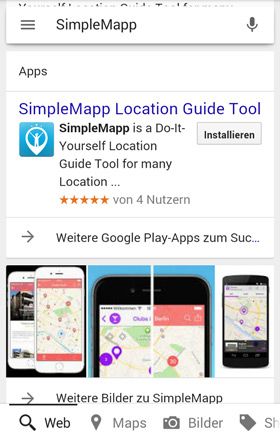Nowadays, in the hyperconnected world we live in, people want and need to access their information and services wherever they are. The usage of the smartphone instead of the desktop or laptop computer to search the web on-the-go has heavily increased in the recent years and since 2014, over 60% of the online traffic comes from mobile devices. In this context, it is more important than ever to engage the users with the right content, at the right time and through the right technology. All this while providing them with a seamless and native experience that keeps them engaged and coming back for more. This is not an easy task, but Google, through its App Indexing API provides a set of tools to help the App providers achieve the best result possible.
Google is the giant of the web search, their current worldwide mobile and tablet market share is above 92%, and just in the DACH region they are responsible for more than 96% of the searches in this category. Their search algorithm crawls the websites and creates an index of those that are found, which are later displayed to the user based on the terms he or she inserts into the search field. This makes sense on the desktop environment, but when you do a search on mobile, it would make more sense to also display results from the software already installed on the phone; but still we get links that either point to websites or to the Google Play Store App to help us discover and install new applications.

